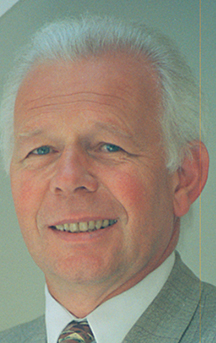America lost a giant on Dec. 29, when our 39th president, Jimmy Carter, passed away at the age of 100.
After his wife of 77 years, former First Lady Rosalynn Carter, died a year ago, President Carter decided to stop his treatment for diagnosed metastatic skin cancer. He, instead, chose to enter hospice at his home in Plains, Georgia. They will be rejoined and be buried side by side at the family compound.
Jimmy Carter, who has been referred to as the “humblest president in our history,” was much more highly regarded for all the humanitarian work he took on after he lost his bid for reelection to Ronald Reagan in 1980 than for his record in office. Carter took office just thirty months after Richard Nixon had left the entire federal government in shambles and became president by narrowly defeating Gerald Ford. He faced multiple epic challenges during his four years in office: the energy crisis, Soviet aggression, Iran, and a deep, post-Watergate mistrust of leadership by his citizens. Critical observers described him as hard working and conscientious, but sometimes out of place. His stubborn independence, a great asset while running for office, became his downfall while climbing to the presidency.
Carter’s idealism came through in his inaugural address. Some of its salient points are worth repeating. They are still appropriate in the current political climate:
– “For myself and for our nation, I want to thank my predecessor for all he has done to heal our land.”
– “Let us create together a new national spirit of unity and trust.”
– “We reject the prospect of failure or mediocrity or an inferior quality of life for any person. Our government must at the same time be both competent and compassionate.”
– “We know that the best way to enhance freedom in other lands is to demonstrate here that our democratic system is worthy of emulation.”
– “We will be vigilant and never vulnerable, and we will fight our wars against poverty, ignorance, and injustice – for those are the enemies against which our forces can be honorably marshalled.”
While most ex-presidents pursued financially rewarding activities after leaving office, President Carter pointedly rejected that path, intimating his disinterest in getting rich. Shortly after his presidency, in 1982, the president established the Carter Center, designed to promote and expand human rights, and which earned him a Nobel Peace Prize in 2002. The former president traveled extensively to conduct peace negotiations, monitor elections, and to further the eradication of infectious diseases. Many of us admired him for personally and physically participating in the works of Habitat for Humanity until he was well into his nineties.
Few, if any, former presidents have earned the gratitude and admiration President Carter has after leaving the presidency. He really was a giant among many who provided us with a model for what it takes to be a decent human being. He deserves a prominent place in our history.
Thank you Mr. President! You set an example to be emulated.









I am in complete agreement. thank you President Carter !!
Hey Steve welcome back we’ve missed your wackadoodleness (Say something pithy for the folks)